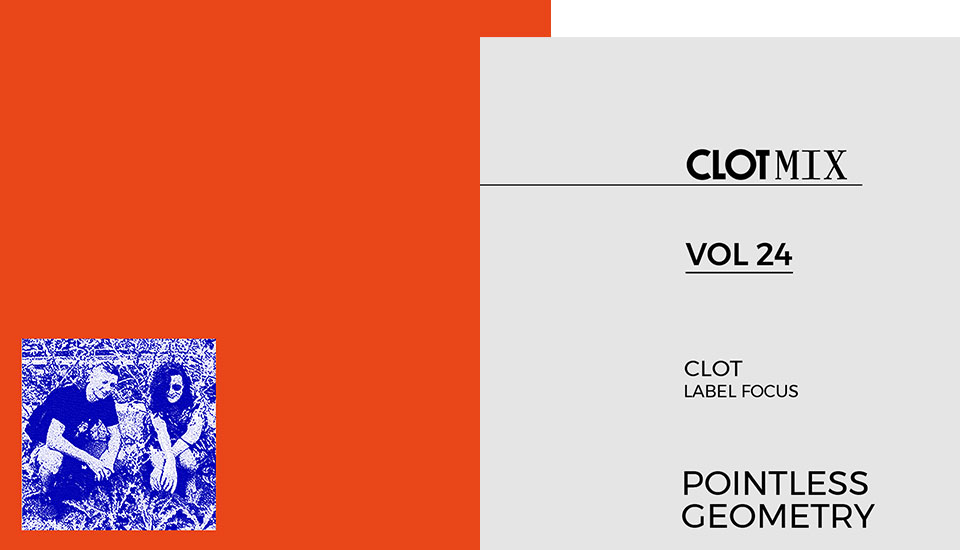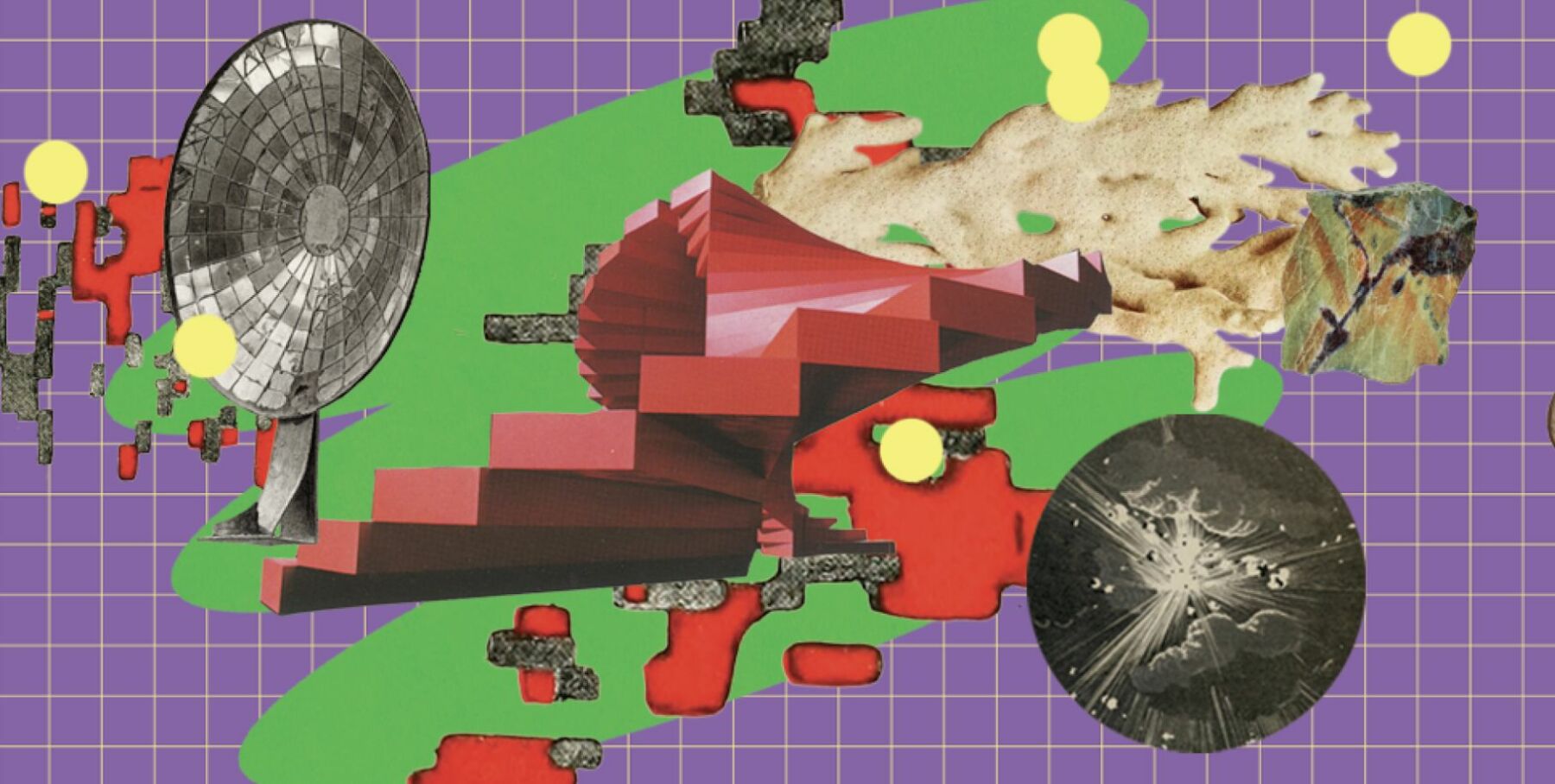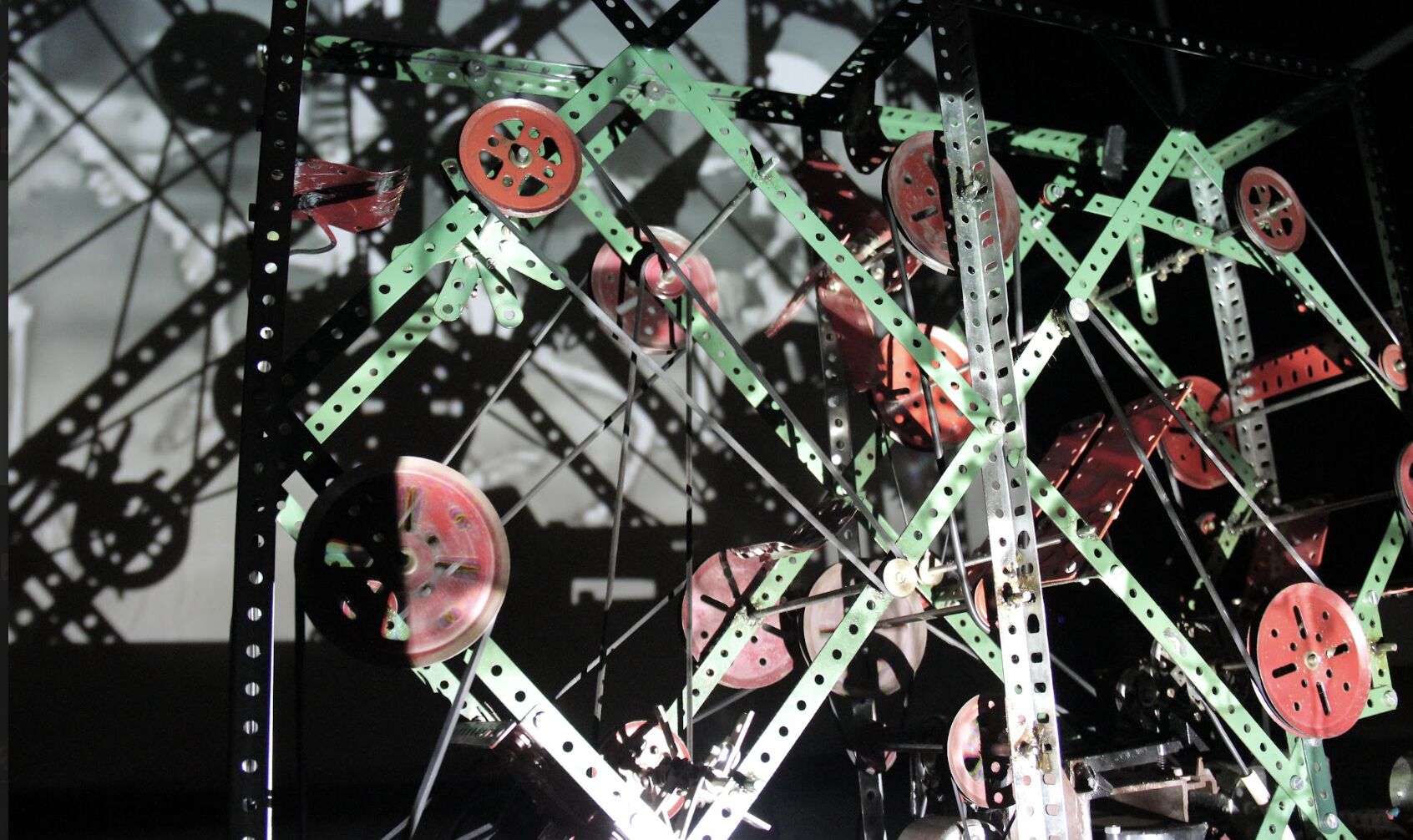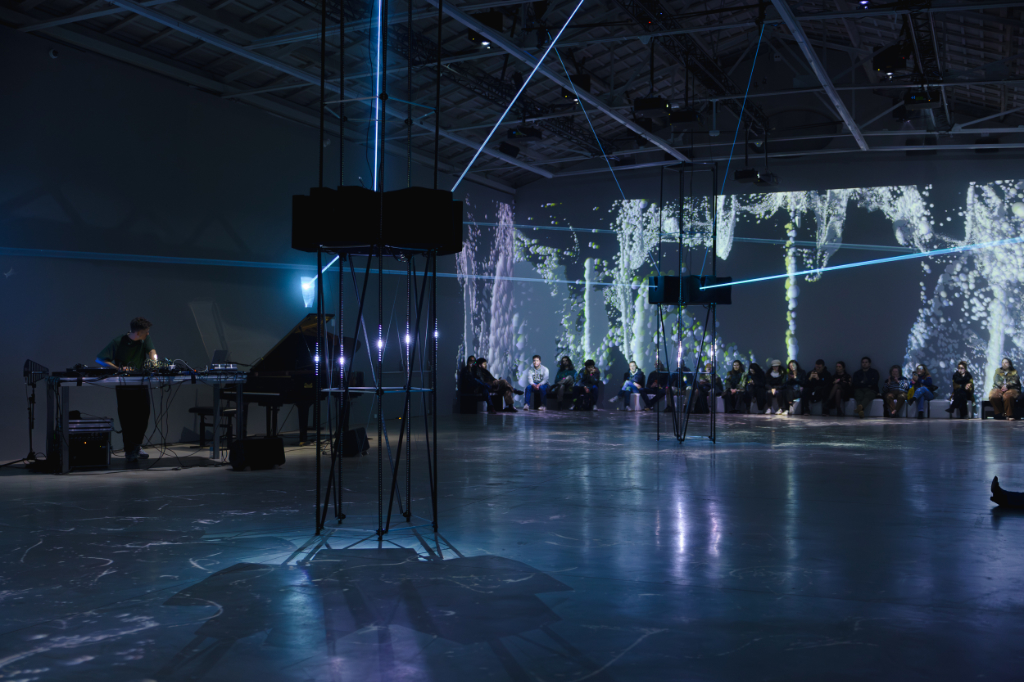Text by CLOT Magazine

The first mixtape of the year arrives with a label focus by Pointless Geometry, an independent label founded in 2015 by Justyna Banaszczyk (FOQL) and Darek Pietraszewski (aka VJ Copy Corp) in Warsaw, Poland.
The label specialises in tape releases of experimental electronic, electroacoustic and dance-esque music and audiovisual projects on VHS tapes and is one of the most interesting labels in Poland. During these last five years, the Pointless Geometry catalogue has grown to include 36 releases by WIDT, Mchy i Porosty, Jakub Lemiszewski, FOQL, Fischerle, Jakub Gliński and Muka, to name just some of the artists.
All the label entries are accompanied by a carefully designed graphic design, available in a limited collector’s series, prepared by some of the most interesting Polish artists, such as Stachu Szumski, Sandra Sygur and Tomek Popakul.
And once or twice a year, Pointless Geometry releases an audiovisual project on VHS. These releases are limited to 20-30 copies. The team shares they don’t make any profit from them, but they’ve become a small tradition of sorts. The whole topic of VHS recordings and analogue videos is still interesting to explore, and they get flooded with proposals.
For this mix, Pointless Geometry has included some tracks from their recent and upcoming premieres and from Pointless Geometry’s back catalogue.
What was the main idea for the inception of the project and the ethos behind it?
Pointless Geometry was founded to showcase and boost independent local scenes and keeps developing in parallel to them, but also closely follows global independent music trends. Most of our releases are focused on Polish artists, but we also reach for proposals from other countries, such as Fausto Mercier, Obsequies or Drvg Cvlture. There are no genre delimitations apart from the personal music preference of people behind the label. We try to release music beyond any single genre, that can introduce a ‘new quality’ into – or a fresh outlook on – electronic and experimental music.
Yet if we get our hands on an interesting proposal that’s either strictly club music or something acoustic, we’ll definitely take it into account too. Running a label is just one branch of our music-related activities. We organise gigs and other artistic actions, we co-run Radio Kapitał and we are performers ourselves, so the label is part of our broader activity, with its various branches partially overlapping and shaping each other.
The current approach to micro labels, such as Pointless Geometry, is one of curatorship rather than running a label in the traditional sense of the word. We tend to feel like a local part of a global music ecosystem/organism, which changes and evolves on an ongoing basis but doesn’t try to keep up with the latest trends or fads. We can’t foresee what Pointless Geometry might release in a year or two. Right now we are based in Łódź (big post-industrial city in the centre of Poland). This also adds some new perspectives to what we are up to.
How do you position the label with respect to Poland’s experimental scene?
We’re only interested in independent and independently released music. There’s so much of it around that there’s no time left to follow mainstream music. We don’t feel like it anyway; we don’t see any purpose. I don’t think Poland’s current political and historical situation has any real influence on independent music movements or labels, but from a broader perspective, communism has definitely limited the development possibilities of the so-called indie scene. The indie music community in Poland mostly adheres to left-wing values and celebrates freedom…
And why is tape your preferred format? What is it that most attracts you to it?
We treat tapes as a medium to listen to music, not as a vintage gadget you can put on the shelf, so the quality of recordings is very important to us. We carefully select from the available tapes, test them, and we record them ourselves using individually calibrated equipment.
Darek plays cassette-based live sets, so the quality of recording and mastering is very important – he doesn’t use some of the tapes from his collection in the sets precisely because of the poor quality of the recording. The graphic design of each release is also important – we try to engage a new graphic artist to design subsequent covers. Most of the work related to cutting out the covers and assembling the tapes is done at home, reflecting the DIY spirit.
What is your relationship with technology nowadays? How do you cope with screen/digital technology overload?
Humans have something called free will and do not have to participate in this overload. We need to do some mental work to achieve it and limit what is harmful to us (first of all, social media).






